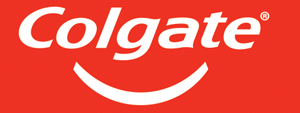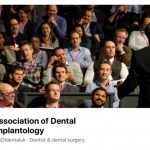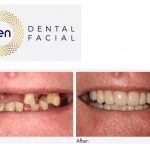Dental professionals have possibly heard every new year’s resolution in the book. Whether it is working out more, spending less time on social media, saving money or becoming more mindful, the determination is almost palpable at the beginning of the year. But unfortunately, the majority of people lose their determination within a month or two and a great many fail to accomplish their good intentions.
The most popular New Year’s resolutions centre around health. Taking more exercise or increasing fitness is at the top of the leader board closely followed by losing weight, improving diet, cutting down on alcohol and giving up smoking or vaping.[1] However, changing behaviours can be extremely difficult and it can take a long time to establish a new habit. It depends on each individual of course, but according to research, it takes an average of around two months (66 days) for an action to become automatic, and the more achievable that action is, the more quickly it becomes second nature. [2]
Many people make the mistake of making changes or setting goals that are far too ambitious. The challenge is often simply too much and they are doomed to failure. Plus, if they try and fail it can make them feel worse about themselves than if they had never tried at all. However, altering the way in which something is approached may help to maintain a sense of well-being and most certainly, your professional guidance and support can encourage your patients to stay on track.
The first, most obvious tip you can give patients is to start small. Advise them to be realistic and set targets that are easy to accomplish. If they are not to able complete their objective or fully commit to a change in behaviour straight away, encourage them to take small steps towards their goal each day.
Explain how self-judgment is unhelpful and thoughts such as “I don’t think I can do this” are not constructive. Help patients to reframe this script and retrain their brain to create positive self-thoughts. For instance, “I am working towards a healthier lifestyle” or “I feel more invigorated today” will build confidence and help them to succeed.[3] Naturally, there will times when they stray from their target but they will regain their resolve more easily if they are kinder to themselves.
Encourage your patients to trust their instincts. Often people can feel in some way entitled to something – be it a glass of wine after a busy day at work, a bar of chocolate or staying up late to watch a box set. They know that it is not good for them and it is likely to make them feel unhealthy or tired the next day but equally, that awareness is powerful enough for them to acknowledge how capable they are of making changes for the better.
Most people have an established morning routine that they take for granted. This is likely to involve actions such as getting up, opening the blinds, taking a shower, making a coffee and eating breakfast. There is nothing unusual about these activities or patterns of behaviour but they are built into the brain and have been strengthened over many years. Consequently, the morning is an ideal time to establish a new routine and the way to successfully form a new habit is to tie it to a current one. For example: if a person usually gets up and goes straight to the kitchen to get a drink, they could use this pattern of behaviour to establish a new habit such as: doing some star jumps while the kettle is boiling or writing a ‘to do’ list while they drink their tea. This process can also be repeated to link several habits together, each one acting as a cue for the next and should increase the likelihood of success.
Dental professionals can also make use of this natural habit-forming behaviour to enable patients to improve and maintain better oral health. When providing oral health instructions, encourage patients to tie the habit of taking a shower to daily flossing. Using string floss can be difficult and tiresome for a lot of patients but the WaterpikÒ Cordless Advanced Water Flosser, makes flossing quick, convenient and considerably more achievable. This lightweight, portable model is waterproof so it can be used in the shower to remove hard to reach bacteria and debris that can cause bad breath, gum disease and tooth decay. The WaterpikÒ Water Flosser combines water pressure and pulsations to clean areas that brushing and traditional dental floss cannot reach. It is also clinically proven to be significantly more effective for removing plaque and improving gum health than string floss. [4]
Dental professionals can help patients to develop motivation, establish new habits and make positive changes to benefit their health and well-being.
For more information on Waterpik® products please visit www.waterpik.co.uk.
Waterpik® products are available from Amazon, Asda, Costco UK, Argos, Boots, Superdrug online and in stores across the UK and Ireland.
Book a free Waterpik® Professional Lunch and Learn for 1 hour of CPD – available either as a face to face meeting or a webinar. Please visit www.waterpik.co.uk/professional/lunch-learn/
Author: Maxwell O’Neill, professional educator for Waterpik
[1] Ibbetson C. Quarter of Brits will make a New Year’s resolution. YouGov. December 2019. https://yougov.co.uk/topics/lifestyle/articles-reports/2019/12/31/quarter-brits-will-make-new-years-resolution [Accessed 5th October 2020]
[2] Lally P. et al (2010), How are habits formed: Modelling habit formation in the real world. Eur. J. Soc. Psychol., 40: 998–1009. http://onlinelibrary.wiley.com/doi/10.1002/ejsp.674/abstract [Accessed 5th October 2020]
[3] Goetz T. How to change unhealthy habits. Psychology Today July 14, 2016. https://www.psychologytoday.com/gb/blog/renaissance-woman/201607/how-change-unhealthy-habits [Accessed 5th October 2020]
[4] Goyal C.R et al. Evaluation of the plaque removal efficacy of a water flosser compared to string floss in adults after a single use. Journal of Clinical Dentistry 2013; 24:37-42. Study conducted at BioSci Research Ltd, Mississauga, Ontario, Canada. https://pubmed.ncbi.nlm.nih.gov/24282867/ [Accessed 5th October 2020]



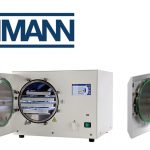


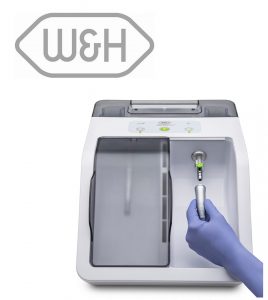 To support more efficient treatment, it is important to invest in reliable decontamination equipment that can keep pace with the demands of a busy practice, whilst ensuring the health and safety of both staff and patients. Thermal washer disinfectors like the new Teon from W&H provide an automated, reproducible and validated means of cleaning instruments, including hollow and rough-surface handpieces, as well as tools with complex components. Some dental handpieces may not be suitable for cleaning in a thermal washer disinfector, so be sure to refer to the manufacturer’s guidelines to avoid incorrectly processing instruments and invalidating any warranties.
To support more efficient treatment, it is important to invest in reliable decontamination equipment that can keep pace with the demands of a busy practice, whilst ensuring the health and safety of both staff and patients. Thermal washer disinfectors like the new Teon from W&H provide an automated, reproducible and validated means of cleaning instruments, including hollow and rough-surface handpieces, as well as tools with complex components. Some dental handpieces may not be suitable for cleaning in a thermal washer disinfector, so be sure to refer to the manufacturer’s guidelines to avoid incorrectly processing instruments and invalidating any warranties.



